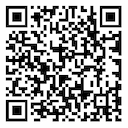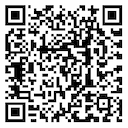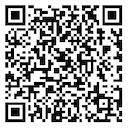The Relationship Between MBTI Types and Emotional Intelligence: Do Certain Types Exhibit Higher EQ?
The Relationship Between MBTI Types and Emotional Intelligence: Do Certain Types Exhibit Higher EQ?
Emotional intelligence (EQ) has been recognized as a crucial factor in personal and professional success. It involves the ability to understand and manage emotions, as well as effectively navigate social interactions. On the other hand, the Myers-Briggs Type Indicator (MBTI) is a widely-used personality assessment tool that categorizes individuals into sixteen different personality types based on preferences in four dichotomies: Extraversion (E) vs. Introversion (I), Sensing (S) vs. Intuition (N), Thinking (T) vs. Feeling (F), and Judging (J) vs. Perceiving (P).
The question arises: is there a relationship between MBTI types and emotional intelligence? Do certain personality types exhibit higher levels of EQ than others? Research in this area has produced mixed results, with some studies suggesting correlations between specific MBTI types and EQ, while others finding no significant associations.
For example, individuals with a preference for Feeling (F) over Thinking (T) in the MBTI framework are often believed to have higher emotional intelligence due to their inclination towards empathy and understanding emotions. Additionally, those with Introverted (I) preferences may excel in self-awareness and introspection, key components of EQ.
However, it is essential to note that emotional intelligence is a complex and multifaceted construct that goes beyond personality traits. Factors such as upbringing, life experiences, and individual differences also play significant roles in shaping one's emotional intelligence.
To explore the relationship between MBTI types and emotional intelligence further, individuals can take the EQ-i 2.0 assessment, which provides a comprehensive evaluation of emotional intelligence skills across five composite scales: Self-Perception, Self-Expression, Interpersonal, Decision Making, and Stress Management. This test can offer insights into areas of strength and opportunities for growth in emotional intelligence.
Additionally, for those interested in delving deeper into the field of emotional intelligence and personality psychology, the following books are highly recommended:
1. "Emotional Intelligence 2.0" by Travis Bradberry and Jean Greaves
2. "The EQ Edge: Emotional Intelligence and Your Success" by Steven J. Stein and Howard E. Book
3. "Gifts Differing: Understanding Personality Type" by Isabel Briggs Myers
4. "The Oxford Handbook of Emotional Intelligence" edited by Marc A. Brackett and Peter Salovey
In conclusion, while there may be some correlations between MBTI types and emotional intelligence, it is essential to approach the topic with caution and consider the complexities of both constructs. Understanding and developing emotional intelligence is a valuable pursuit for personal and professional growth, regardless of one's MBTI type.





